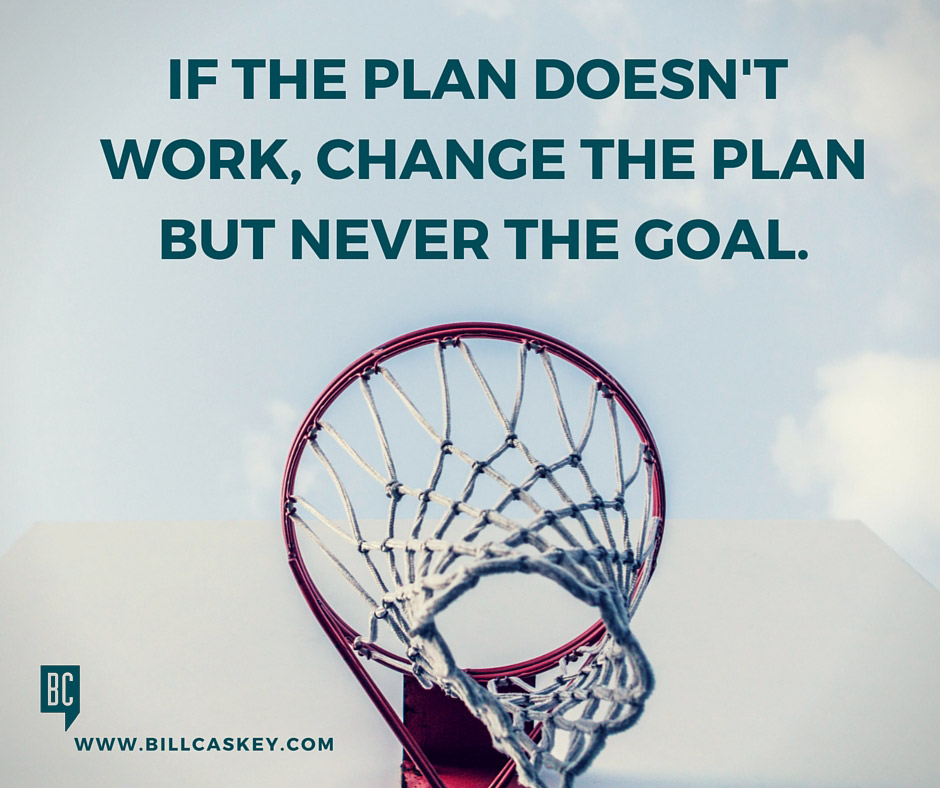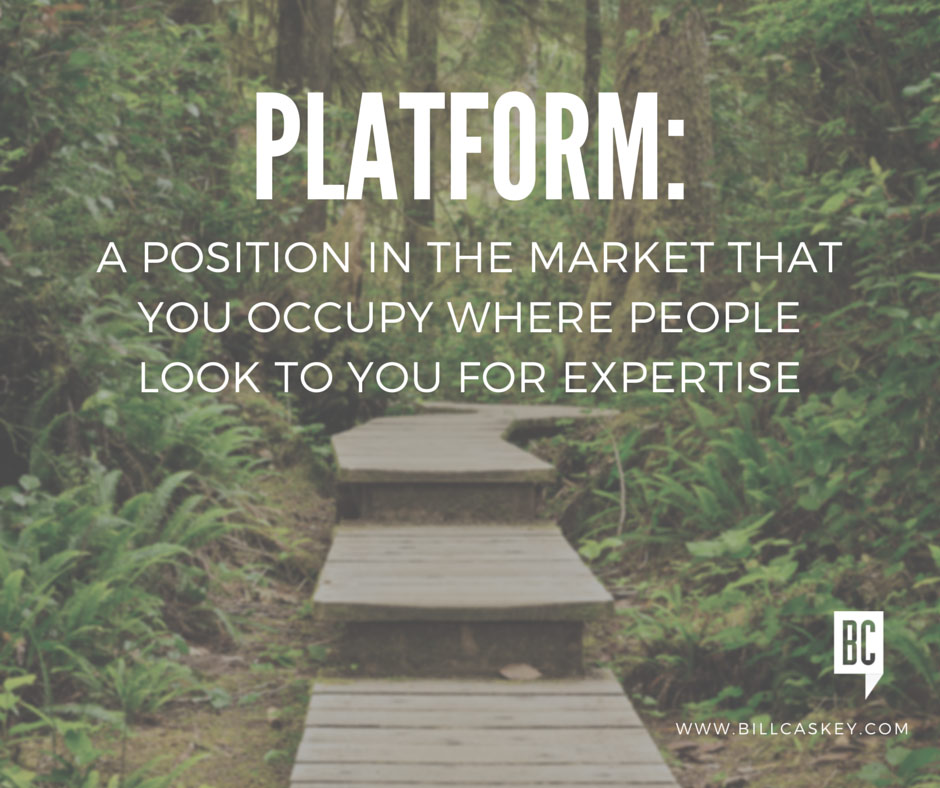
In the second of a two-part series on some tips for high achievers, Bill Caskey takes a look at why you should start building your online platform and how it all ties down into your personal branding. He talks about digitizing your connections and making digital content for people to sample you, get their trust, and ultimately do business with you. Finally, he dives deep into accountability and emphasizes why it’s needed.
—
Listen to the podcast here:
Attention High Achievers – Part 2
We are on a journey here to part two of our two-part series on how to be a higher achiever. That’s not the title of it, I don’t have a title of it, but I do know this. I get a lot of email and sometimes even calls from people who are high achievers, already good at what you do, but you want to do more. You want to be better, but you don’t want to burn yourself out doing it. Grinding is not the way to go from $200,000 a year to $900,000 a year. There are not enough grinding hours in the day to do that. We’ve been taking a look, if you have not read to last episode, read this one and then go back and read to that one. They’re not necessarily sequential, but I’ve got seven tips here. We talked about some of the traps that a high achiever faces in last episode. I’m not going to go over those again, but I will quickly recap the first four of my seven tips.
Number one is get clear on vision. Where are you going? What do you want life to look like? Not that it’s bad now, what do you want it to look like in your ideal future? Number two, what’s your required mentality in order to get to those things? If we don’t change the mind, we can’t change the market. Change your mind first and figure out what those things are. Number three is limiting beliefs. Where are you limiting yourself? You might even call this limiting self-beliefs because these are beliefs about you. This has nothing to do with the outside world.
This is only what you believe about you, about your future, about your potential, about your role on the planet, about your purpose, which brings me to number four, purpose. Why do you do this? What’s behind it all? Not just why are you here traipsing around the earth, that might be part of your purpose, but why do you do what you do in your business? Is there a real purpose or is it to make money? Hopefully, it’s more than that. I think most high achievers have a purpose beyond money. Money can be a by-product and a submission, but I don’t think it can be your sole purpose.
Those are the four things that we talked about last episode. I also mentioned that I am considering putting together based on the feedback that I got from the last session and over the last few months, putting together a high achievers small group coaching session series. These would be for people who are in the $200,000-ish range and want to grow more. If you’ll go to BillCaskey.com, at the very top, there’s a thin banner. You’ve got to have to look for it. Get on my wait list. There’s no commitment there. I’m not going to be charging your credit card or anything, but I want to know who’s interested and who’s not. If you’re interested in something like that, get on the wait list. As I start to craft this thing, I will let you know and keep you updated. Let’s get back and talk about 5, 6 and 7.

High Achievers: If you’re a high achiever that wants to get to the next level, you’ve got to digitize your connection points.
Number five, the high achiever needs to think digitally by building his or her platform. I dumped this into the same area as personal branding, but a lot of the way you got from where you were several years ago to where you are now, was from grinding. It was from physically showing up at networking events, making calls, doing deals and getting referrals. I think all those things still work although I know with COVID the networking thing probably hasn’t so well, but it could be online. I’m interested in you building your brand online, building a platform. A platform could be LinkedIn. I’m not just talking about getting on LinkedIn and linking to a whole bunch of people until you have 5,000 connections. What are you going to do with that?
I’m talking about creating digital content online so people can sample you. People can say, “I’ve been watching Phil’s videos. It’s time for me to buy a building in downtown Chicago. I like Phil’s videos. I’m going to call him and see if maybe he’ll work with me.” The idea here is that high achievers want to get to the next level. They’ve got to digitize their connection points. Building your platform and your brand is all part of that. I’m not necessarily talking about blogging or vlogging. I’m saying, “If you’re not consistently producing content, and I like video and I like audio, written is fine, that’s helpful to your market.” That’s critical. It can’t just be all about you, how great you are, how great your company is. We know because we’ve asked you. You say it’s great. This content needs to be, “How am I going to help my customer? How am I going to help them walk through the processes?”
Number six, as we talked about with vision, you’ve got to have a clear understanding of where you’re going. Number six is building the plan. I call it the plan suite. The plan suite are 3 or 4 different plans. There’s the longer term 3 to 5, if some of you want to go ten, you can. I know some people have 25-year goals. I feel like that’s a little too far out there especially for a guy my age, but 3 to 5 is a good starting point. Let’s say, “What do I want to be, do, have, earn? What is my lifestyle? What do I want it to look like in five years?” That’s a good space. That’s the end goal, 3 to 5 years.
We’ve got the one-year plan. We’re shortening it up and saying, “The next year, what do I want to accomplish? What skills do I need to have? What are my mindsets? What are some of my limiting beliefs I need to break through? How am I going to build my platform?” Virtually anything that we talk about in these seven could appear on a one-year plan. I have all of my small group coaching clients, if we do this high achiever program, we’ll do it there, create a one-year plan. You would be shocked about how many people come to me six months into the year and say, “I’m done for the year. Everything that I had on my plane has come true.”
It’s not any kind of magic. It’s when you write something down and you refer to it often and as you’re building your monthly plan, you’re referencing those one-year milestones, goal-setting and goal-achievement is not that difficult. When we don’t write it down and we don’t have a plan and we don’t have an action-oriented way to implement those things, then it becomes a difficult. The third element of the plan, we’ve got the five-year, we’ve got the one-year, we got some a 30 or 90 day. Some people like the 90-day thing. I’m more of a 30-day guy. That would be the next one. You’re using your one-year plan to reference when you’re planning your 30-day plan.
If your one-year plan is, “I need to improve my video skills,” and it’s August and you haven’t done it yet, then get to work. That should be part of your monthly plan is, “I want to reach out to someone and have them coach me on video skills.” The other plan is probably the short-term, one day, one week. I like the weekly plan, but at some point, you need to know what you’re going to be doing every day. I like to do that Friday for the next week. That’s up to you. Those are the four plans in the plan suite. Number seven, the last one and I can’t overestimate the importance of this and that is an accountability factor. I call it a factor because it doesn’t have to necessarily be a group, it doesn’t necessarily have to be a person, but you’ve got to find some way to be accountable to someone outside of yourself for the behaviors required to get to your level of success that you want to.
I don’t like it to be a spouse or a family member. Preferably I like to have a coach, someone from the outside who doesn’t base on whether I win or lose. There’s too much garbage and drama that goes along with that. That’s why I don’t like spouses to be your accountability partner because they’re in the game with you. A coach has to be sitting on the sidelines, looking at the game. That’s why I like coach and small groups. We have a group called The 2X Group, which is a sales B2B sales group. That is exactly that. We hold each other accountable in a nice, gentle way. We don’t spend a ton of time each session on it, but we do spend a little bit of time.
When I commit to another human being and look them in the eye and say, “By the time we meet next, I will have this lead generation program written.” I have an extra added level of incentive and commitment to do it. How many times have you written the paper the day before it’s due when you were in school? It’s accountability. It’s due. I put it off until the last minute and that’s not good, but at least I got it in. It’s the same thing with any accountability group, factor or coach. Have somebody around you who holds you accountable. They don’t babysit you. They don’t call you at 6:00 AM to make sure you’ve rolled out of bed or lifting weights already. They don’t make sure you’re not eating donuts all day. That’s not what an accountability partner does. Accountability partner meets you on a frequent basis, weekly, biweekly and you check in with each other.
Those are my seven things. If you liked these and if you feel like, “I’m doing well, but there’s another gear, but I don’t want to work harder. That’s clear. I don’t want to go from 50 hours a week to 90 hours a week to make an extra $200,000.” You should not. If you might be interested in what I’m putting together, I’m working out some of the details now. I don’t know exactly what it looks like or what costs, but I’m looking for 10 to 15 people who might want to join me on this journey of high achievers.
We’ll talk more about the money later. If you’re interested, go to BillCaskey.com. On the top upper part there’s a little thin banner there. Click on that, it’ll take you to a page. We’ll also be sending you out something too. I’m working on this document called The Required Mindsets of the High Achiever. It’s not done yet. It will probably be another couple of weeks, but I will send that to anybody who puts their name on the waitlist as a gift. I enjoyed having you. I’m glad that you read every week.




